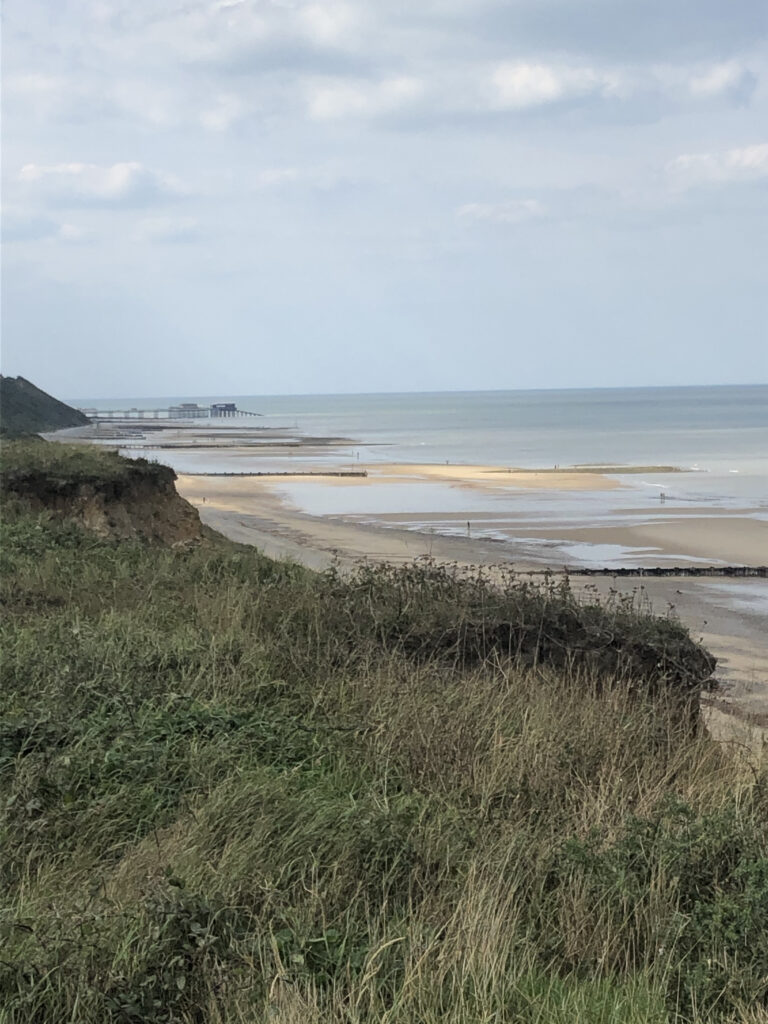This film was released last year and is set in 2019. It was shot in Cromer on the North Norfolk coast and based in a world in which the UK is almost permanently dogged by its failure to ‘get Brexit done’. It was made by a German producer, Jens Meurer, and has an occasionally awkward balance between overdubbed German conversation and subtitles. But watching it is worth the effort. Seaside Special (its poster is shown on the home page) is, to quote itself, “very British, authentisch, witzig, mitreisend“. (‘Clever’ and ‘amusing’ I agree with; not so sure about the ‘thrilling’.)
It is a 90-minute trip to the past. The broad backdrop to the film is the story of local people rehearsing and taking part in the town’s annual end-of-the-pier show, which in this case is a commercial and artistic (?) success. Intermittently the visual narrative is interrupted with broadcasts from BBC Radio Norfolk, beginning in March 2019 with the news that Theresa May was going to request the EU for an extension to the deadline for concluding the UK’s Brexit negotiations. (This reminded me of a marvellous meme circulating around that time: ‘The year is 2192. The British prime minister visits Brussels to ask for an extension of the Brexit deadline. No one remembers where this tradition originated but every year it attracts many tourists from all over the world.’)

The good folk of Cromer overwhelmingly voted for Brexit, but both sides of the argument are given space herein, and it is notable that while opinions are divided and the subject was the cause of considerable rancour throughout the nation (an image of the Daily Mail is flashed up, saying ‘We’ll Never Give Up On The Brexit We Voted For’), the actors and singers seem to rub along nicely – and certainly the renditions of Bohemian Rhapsody and Waterloo are performed well enough!
Cromer is what it looks like: a lovely old-fashioned English seaside town. What Meurer does well is tell a somewhat melancholy story with panache and a grin – as The Guardian pointed out, a British producer might have tended towards ‘miserabilism’. There is none of that here. In a way the film might tell a truth that is well known but perhaps too infrequently acknowledged: that there is a huge sense of decency and well-meaning among the majority of British people; the problem is that sometimes (and this is not only a UK phenomenon) we permit our politicians to bring out the worst in us.
Having journeyed through the year of 2019, towards the end of the film we arrive at polling day on December 12, 2019. Having been rebuffed by parliament in his attempt to force through a no-deal Brexit, Boris Johnson has got the general election he craved. As you will know, he won it with an enormous majority. Who would have thought that within three years he would have lost his job as prime minister? (A final thought: the film serves as a gentle reminder of the world we inhabited before covid discovered us.)
